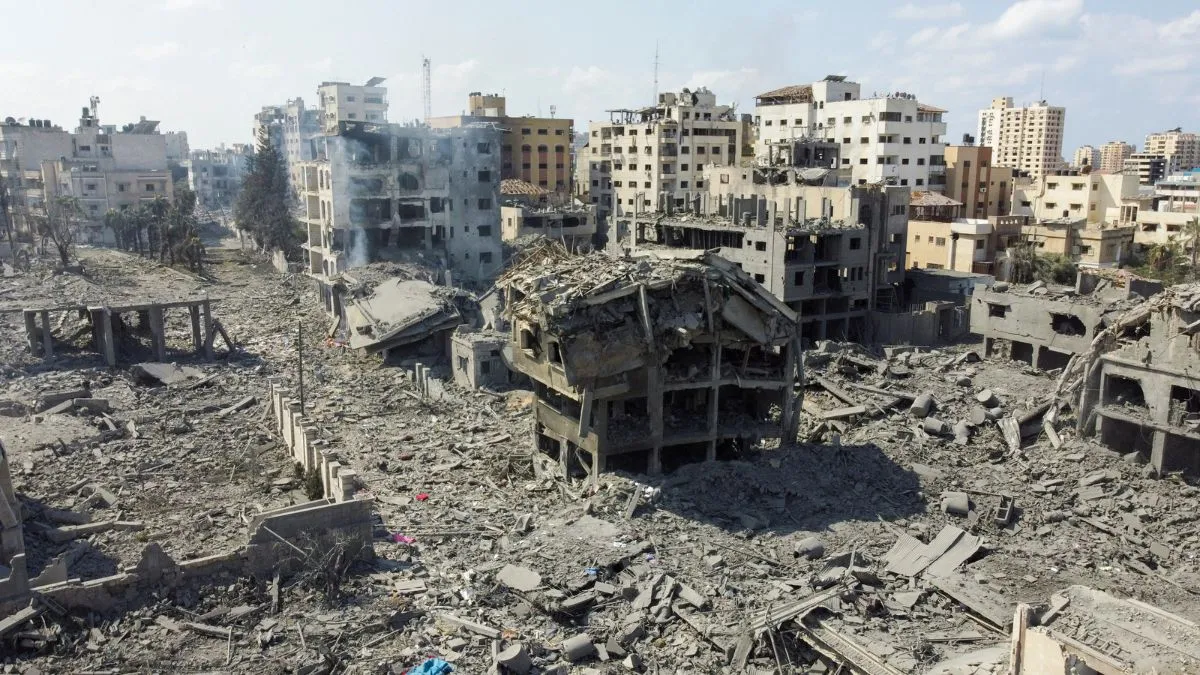- By Shivangi Sharma
- Sun, 19 Oct 2025 03:03 PM (IST)
- Source:JND
Israel launched airstrikes on Gaza on Sunday after accusing Hamas of carrying out “multiple attacks” beyond the agreed‑upon “yellow line” buffer zone, including a rocket‑propelled grenade and sniper fire, in what the Israeli military called a “blatant violation” of the US‑brokered ceasefire, Israeli media reported.
The strikes marked a sharp escalation in a week in which mutual accusations had repeatedly threatened to unravel a fragile truce intended to halt months of bloodshed in the enclave. Israel said the cross‑line incidents endangered its forces and warranted a forceful response; Gaza residents reported explosions following the Israeli action, and local medical reports said they were treating casualties.
Hardline Politicians Demand Renewed Military Action
National Security Minister Itamar Ben‑Gvir publicly urged Prime Minister Benjamin Netanyahu to resume full‑scale military operations in Gaza, demanding the Israel Defence Forces (IDF) “renew full‑scale fighting in the Strip at full strength.” Ben‑Gvir, a far‑right coalition partner, described Hamas in stark terms and warned his party could abandon the government unless its demands, including dismantling Hamas and imposing the death penalty on terrorists, were met.
Netanyahu Names Campaign ‘The War Of Revival’
Ben‑Gvir’s statement came amid heightened rhetoric across the Israeli leadership. Speaking at the start of a weekly cabinet meeting, and shortly before the reported Rafah attack on Israeli forces, Netanyahu suggested the long conflict that began on October 7 is approaching a turning point.
ALSO READ: Royal Scandal Unfolds: How Sex Abuse Allegations, Epstein Ties Brought Down Prince Andrew?
In a video released by his office, he told ministers he planned to propose an official name for the campaign, “The War of Revival”, and said the government would award campaign decorations to soldiers, as is customary after major military operations. Hebrew media reported that Netanyahu briefly left the cabinet meeting after the Rafah incident, reflecting the rapid tempo of events on the ground.

